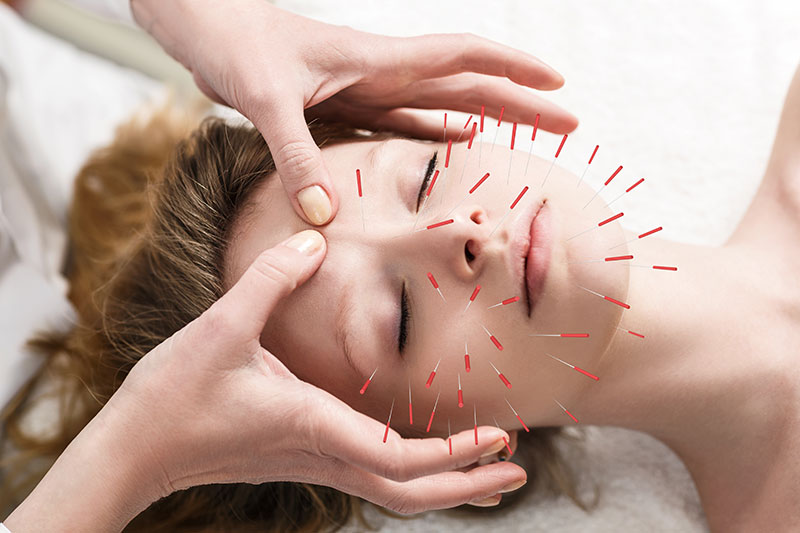Acupuncture is a practice that has been used for a number of issues for many years. Although you may not realise it, this can also influence your mental health. The idea of using acupuncture for anxiety is controversial, although some have reported serious benefits to their day to day life using this treatment.
How Does Acupuncture Work?
When visiting an acupuncturist, the patient will first receive a consultation about their overall health and issues. This can be used to treat both physical and mental illnesses, which will be discussed prior to the treatment. Then, the acupuncturist will start to map out the areas that they will target during the treatment.
The principle of acupuncture relies on free up the body and allowing energy to flow evenly once more. Blockages to this life energy, or Qi, can lead to negative effects on the body, including the manifestation of anxiety. Acupuncture targets these areas and the needles themselves serve the purpose of unblocking the pathways.
Charts of Qi flow and maps of the body are used to determine where the needles will go. This will then be individualised to the patient and their problems. This treatment can be altered as it progresses, to focus on specialised areas or symptoms. The acupuncturist will attempt to understand the causes of pain and the treatments that are most effective for their patient.
Over the course of the treatment, these blockages will be broken up and remain open. After these sessions, the patient can top up their treatment regularly or simply use it as a one-off relief. Most people find that one course of treatment is enough for physical pain, though for mental illnesses this may take longer.
The Origins of Acupuncture
The practice of acupuncture predates recorded history as it was passed on through oral traditions. Over 8000 years ago, Daoist monks used acupuncture as a treatment, though they didn’t have needles at their disposal. Instead, they used stone tools as a method to distribute this treatment. Though the tools were different, the principle was still the same.
During recorded history, acupuncture was the treatment of all, from royalty to the working class. It was classed as part of the Chinese Medical Arts, which were practiced to treat a wide range of ailments. The same charts and processes are used to this day, with very few changes to the overall treatments through the years.
Acupuncture has become popular once more in the last few years, with those that prefer to avoid medications turning to this alternate treatment. Everything from sports related injuries to minor pains can be banished with this treatment. With the increased stress in our day to day lives, acupuncture for mental health has become a common way to take a break and stimulate areas of the brain.
How does it work for Mental Health?
Acupuncture has been proven to create a neurological change within the body. The application of needles physically changes some pathways within our bodies, which can be used on the body as a whole or the brain. Aside from mental health, facial acupuncture can also be useful for the treatment of migraines and headaches.
The application of needles to various points on the face and scalp can stimulate endorphins within the brain. The needles are exceptionally thin and many patients don’t even feel the insertion of them. While facial acupuncture can seem daunting, within the course of the treatment, patients usually relax relatively quickly.
This can trigger healing processes within the body and even remove feelings of severe anxiety. This process can take from 20 to 40 minutes, with around 5 to 10 needles placed in the facial area. This can also be effective for the treatment of depression, fatigue, and other mental illnesses.
Acupuncture is rooted in science and many studies have been conducted in the field. MRI machines and blood pressure monitoring has shown that there is a physical effect of the treatment. Many patients have also reported improved health and wellness after acupuncture in cases that traditional methods were not effective. This can also prompt an improved healing response that cuts down the time needed for physical rehabilitation.
Positive Aspects of Using Acupuncture for Anxiety
Traditional remedies for anxiety can prove expensive and don’t always work for every patient. With acupuncture, many of the side effects of medications are not experienced. For some using antidepressant or mood lifting medication, they can develop addictions, mood swings and can even gain weight as a result of the treatment. This can then compound the problem and make the anxiety problem much worse.
The treatment that an acupuncturist will give for anxiety can be tailored to the specific individual. They will generally attempt to understand the various problems that are causing the problem, as well as the side effects. These can include stress, panic attacks and unease, which can also be treated with regular acupuncture.
Is Acupuncture Safe?
Generally speaking, as long as you are working with an approved acupuncturist that follows all the relevant guidelines then this can be a perfectly safe procedure. They will most likely ask you to report any pain that you feel during and will adjust the treatment as they continue.
Even those that are pregnant can receive acupuncture treatment, as soon as they notify the practitioner in advance. For those that have more serious underlying health issues, such as blood disorders, should consult their doctor before any acupuncture treatments.
Each treatment should be carried out in a sterile environment with single use needles. These will be discarded after the treatment to reduce the risk of cross contamination.
In Conclusion
Acupuncture is a highly sophisticated treatment and when carried out properly, can be used as a treatment for mental health issues. Anxiety can prove to be a debilitating mental illness that has a serious effect on other areas of our lives, so finding the treatment that works for the individual is imperative.

